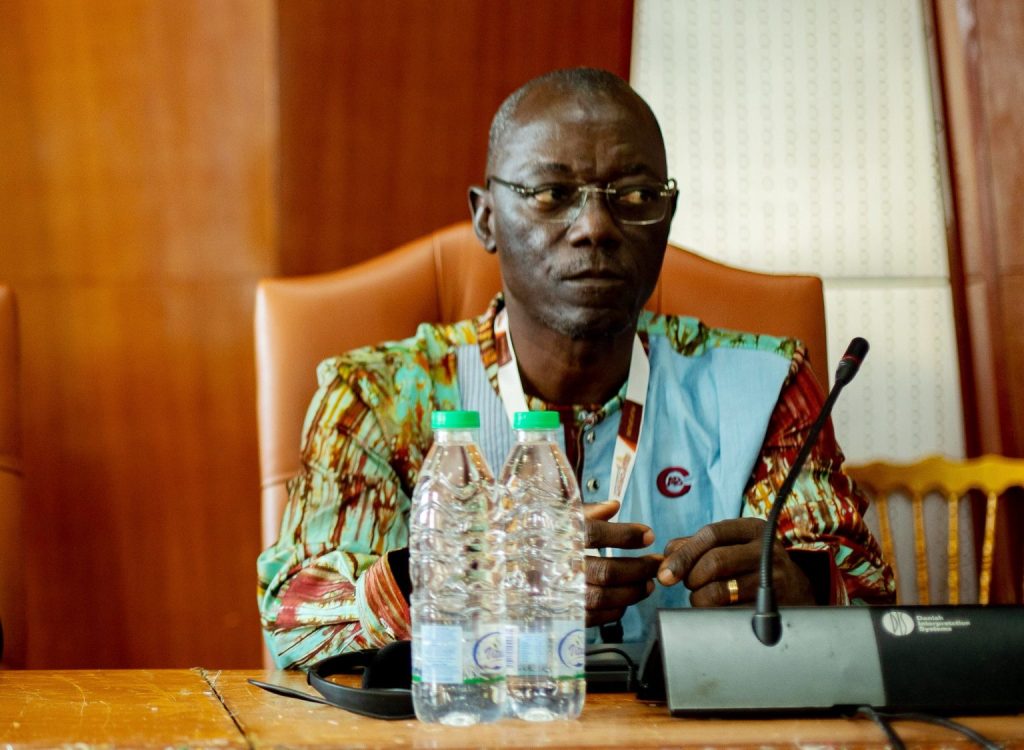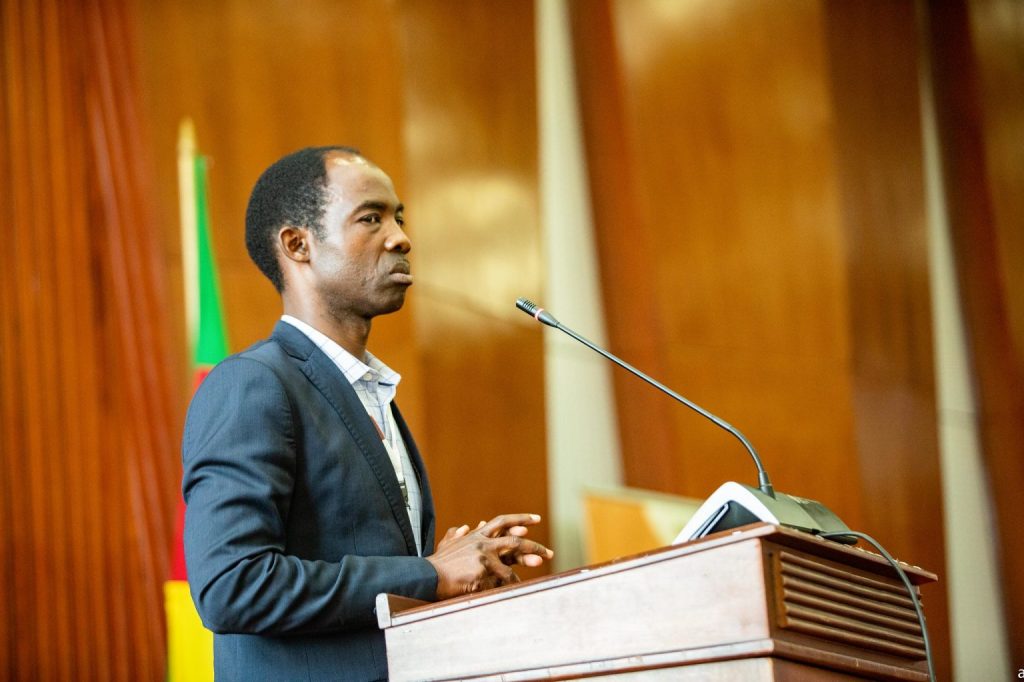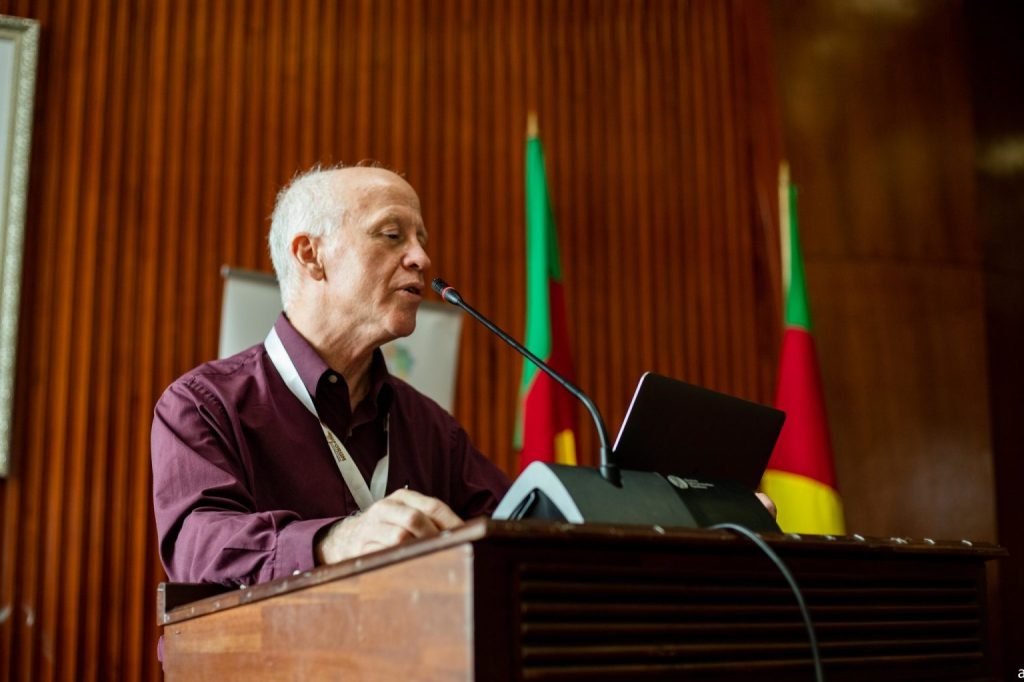#RUFORUMAGM2023
As the impacts of climate change are increasingly being felt across Africa, the Regional Universities Forum for Capacity Building in Agriculture (RUFORUM) has reminded African Governments that their climate commitments are key to preserving the continent’s unique natural resources.

The appeal was made on 1st November 2023 in Yaoundé, Cameroon, where higher education leaders, researchers, policy makers, development partners, students, farmers, among others from across the African continent and the world gathered to discuss and lay strategies to transform agricultural higher education to contribute to Africa’s development.
In line with thematic areas of the 19th RUFORUM Annual General Meeting (AGM), the “Accelerating and Scaling-Up Africa’s Climate Change Adaptation and Mitigation Actions: Experiences and Lessons” side-event was held. The side-event provided a platform for participants to share experiences and lessons learned from initiatives such as; Accelerating Impacts of CGIAR Climate Research for Africa project (AICCRA), the Global Research Alliance for Agricultural Greenhouse Gases (GRA) and Responsible Artificial Intelligence for Climate Action in Africa (RAINCA). It served as a unifying platform where participants collectively envisioned a future characterized by integration and harmony of solutions.
Furthermore, the side-event emphasized the urgent need for swift and coordinated action to mitigate and adapt to the changing climate. The event featured discussions aimed at fostering efficiency, collaboration, and idea-sharing across various tracks.
Africa by virtue of its overreliance on rain-fed agriculture is vulnerable to climate change impacts. Predictions show that global warming of 1.5°C or 2.0°C, a now more than likely scenario, will shorten crop growth duration, aggravate droughts, and consequently reduce yield for major staple cereals.
Climate change adaptation is therefore necessary to reduce the likely impacts on agricultural productivity. Furthermore, mitigation actions are required to reduce on greenhouse gas emissions and enhance carbon sequestration.
In addition to sharing lessons and experiences, the side-event provided a forum to address challenges in accelerating and scaling up Africa’s climate change adaptation and mitigation actions.

Speakers and discussants emphasized the vital role of climate finance in unlocking Africa’s green energy potential and fostering climate-resilient development, with a call on African governments to allocate more financial resources to address climate challenges effectively.
Dr. Florence Nakayiwa Mayega, the Deputy Executive Secretary of RUFORUM, welcomed the attendees with a powerful message. “Africa can play a bigger role in climate change mitigation” she said, urging that “Governments and their people must mitigate climate change while preparing for climate change”.
The Deputy Executive Secretary said that the main objective of the side event was to explore how universities can play an active role in addressing climate change issues. She added that universities should therefore take keen interest in the climate change initiatives RUFORUM is engaged in.
“Under the AICCRA programme, RUFORUM has developed curricula for enhancing the use of validated climate-smart agriculture (CSA) and/or the climate information services (CIS) knowledge products developed by the CGIAR Centres and other research institutions” added Dr. Nakayiwa Mayega.
The modules and other technologies, practices and innovations developed under the AICCRA programme were showcased at the side-event. The meeting also explored avenues for mainstreaming CSA/CIS into university activities including university curricula, research and outreach.

Dr. Robert Zougmore the AICCRA West Africa Cluster Lead delivered the keynote address on Accelerating and scaling-up Africa’s climate change adaptation and mitigation actions: Experiences and lessons learned from AICCRA. He reported that AICCRA which started in 2012 has reached three million smallholder farmers in six countries including: Senegal, Ghana, Mali, Ethiopia, Kenya and Zambia. This, he said, had been achieved through a number of regional initiatives that complement national activities to deliver benefits for a broader range of stakeholders across East, West and Southern Africa.
“Africa, like other regions, has come to terms with the reality that climate change is already happening. The continent now knows that if left untamed, Africa’s economies, livelihoods and nature will be hit by severe climate-induced pressure,” said Dr. Zougmore.
“AICCRA has 45 packages that support millions of smallholder farmers across Africa to access and use proven innovations in climate information services and climate-smart agriculture,” he said.
Dr. Zougmore added that AICCRA believes that with better access to innovative technology and advisory services—linked to information about effective response measures—farmers are enabled to better anticipate climate events and take preventative action that helps their communities safeguard livelihoods and the environment.
He also said that close to 80 partner organisations across Africa are using AICCRA technologies to help farmers and ten agriculture data (Agdata) hubs have been established with the aim of transforming agriculture decisions in Africa. The hubs integrate data from multiple sources to help farmers make informed decisions about what crops or varieties to plant in a given location and when to sow them.

Addressing the audience on “Championing a transformative mode of Climate Change Action in Africa”, Dr. Ackim Mwape, from the Global Research Alliance on Agricultural Greenhouse Gases (GRA) called for the continent’s increased determination to accelerate action on adaptation and finance in order to deliver climate justice that Africa deserves.
Dr. Mwape said that there is need to inject more financial resources in climate action solutions in Africa to ensure that communities can bolster their climate resilience. “Only USD 30 billion in climate financing flows into Africa annually, which is only 11% of the climate financing needs estimated at USD 280 billion a year,” he said.
He said that governments, the private sector, multilaterals and development partners need to do more to help close the climate financing gap on the continent that is not only the hardest hit by climate change but also sleepwalking into a potential catastrophe. Dr. Mwape added that the ongoing initiatives by international partners are still a drop in the ocean compared to financial resources needed to protect the most vulnerable.
He concluded by adding that failure to act now, not only exacerbates immediate risks but also threatens long-term resilience and contributes to social inequality and political instability. He reiterated that access to adequate financial resources is crucial for climate change adaptation and developed countries are expected to scale up climate finance for developing countries with a balanced allocation between adaptation and mitigation.

Discussing Climate Information Services (CIS) Curriculum Development and Research: Experiences from International Research Institute for Climate and Society (IRI), James Hansen a Senior Research Scientist at IRI, said that Africa requires climate information services that effectively meet African farmers’ decision-making needs in a variable and changing climate.
He said that well-functioning weather and climate information services can save lives and livelihoods. He added that in order for African communities and businesses to adapt more effectively to the inevitable impacts of climate change, CIS must be strengthened as comprehensively as possible.
Prof. Hansen however acknowledged that uptake and use of CIS in Africa is influenced by many factors including the lack of reliable historical observations, coarse scale of future climate projections, and weakly coordinated CIS delivery, among others.
Participants were urged to mitigate the effects of climate-related weather events and manage residual risks through participatory planning and comprehensive service delivery.
The side event concluded with a resounding message to the effect that: Africa is not just a continent facing climate impacts; it is a continent poised to lead the world in climate solutions.
During the same event, the GRA-RUFORUM Alumni Network in Africa was launched.
RUFORUM convenings are held annually and rotationally in countries where its member universities are based.
Published on Makerere Website
Leave a comment